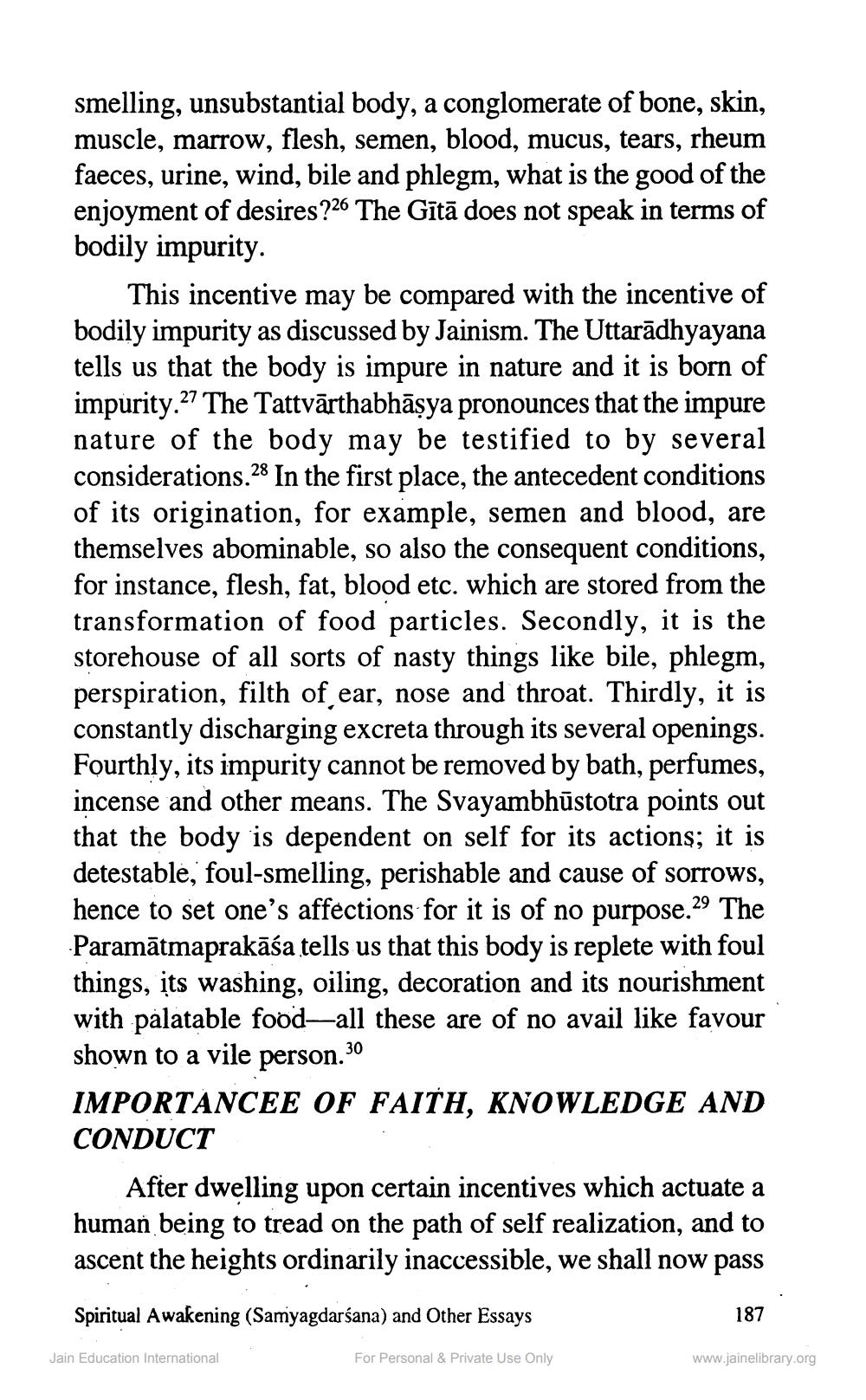________________
smelling, unsubstantial body, a conglomerate of bone, skin, muscle, marrow, flesh, semen, blood, mucus, tears, rheum faeces, urine, wind, bile and phlegm, what is the good of the enjoyment of desires ?26 The Gītā does not speak in terms of bodily impurity.
This incentive may be compared with the incentive of bodily impurity as discussed by Jainism. The Uttarādhyayana tells us that the body is impure in nature and it is born of impurity.27 The Tattvārthabhāsya pronounces that the impure nature of the body may be testified to by several considerations.28 In the first place, the antecedent conditions of its origination, for example, semen and blood, are themselves abominable, so also the consequent conditions, for instance, flesh, fat, blood etc. which are stored from the transformation of food particles. Secondly, it is the storehouse of all sorts of nasty things like bile, phlegm, perspiration, filth of ear, nose and throat. Thirdly, it is constantly discharging excreta through its several openings. Fourthly, its impurity cannot be removed by bath, perfumes, incense and other means. The Svayambhūstotra points out that the body is dependent on self for its actions; it is detestable, foul-smelling, perishable and cause of sorrows, hence to set one's affections for it is of no purpose.29 The Paramātmaprakāśa tells us that this body is replete with foul things, its washing, oiling, decoration and its nourishment with palatable food—all these are of no avail like favour shown to a vile person.30 IMPORTANCEE OF FAITH, KNOWLEDGE AND CONDUCT
After dwelling upon certain incentives which actuate a human being to tread on the path of self realization, and to ascent the heights ordinarily inaccessible, we shall now pass
Spiritual Awakening (Samyagdarśana) and Other Essays
187
Jain Education International
For Personal & Private Use Only
www.jainelibrary.org




